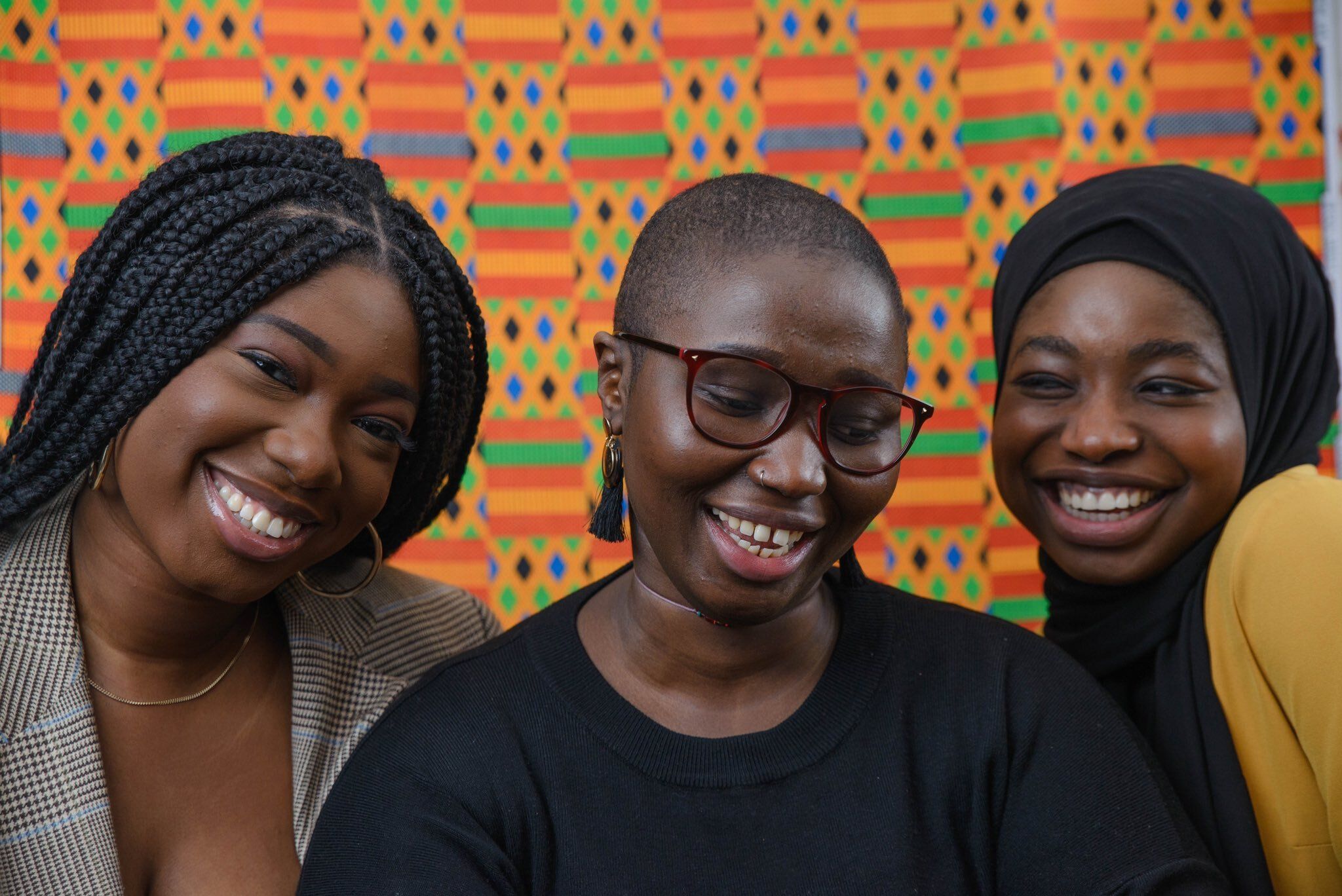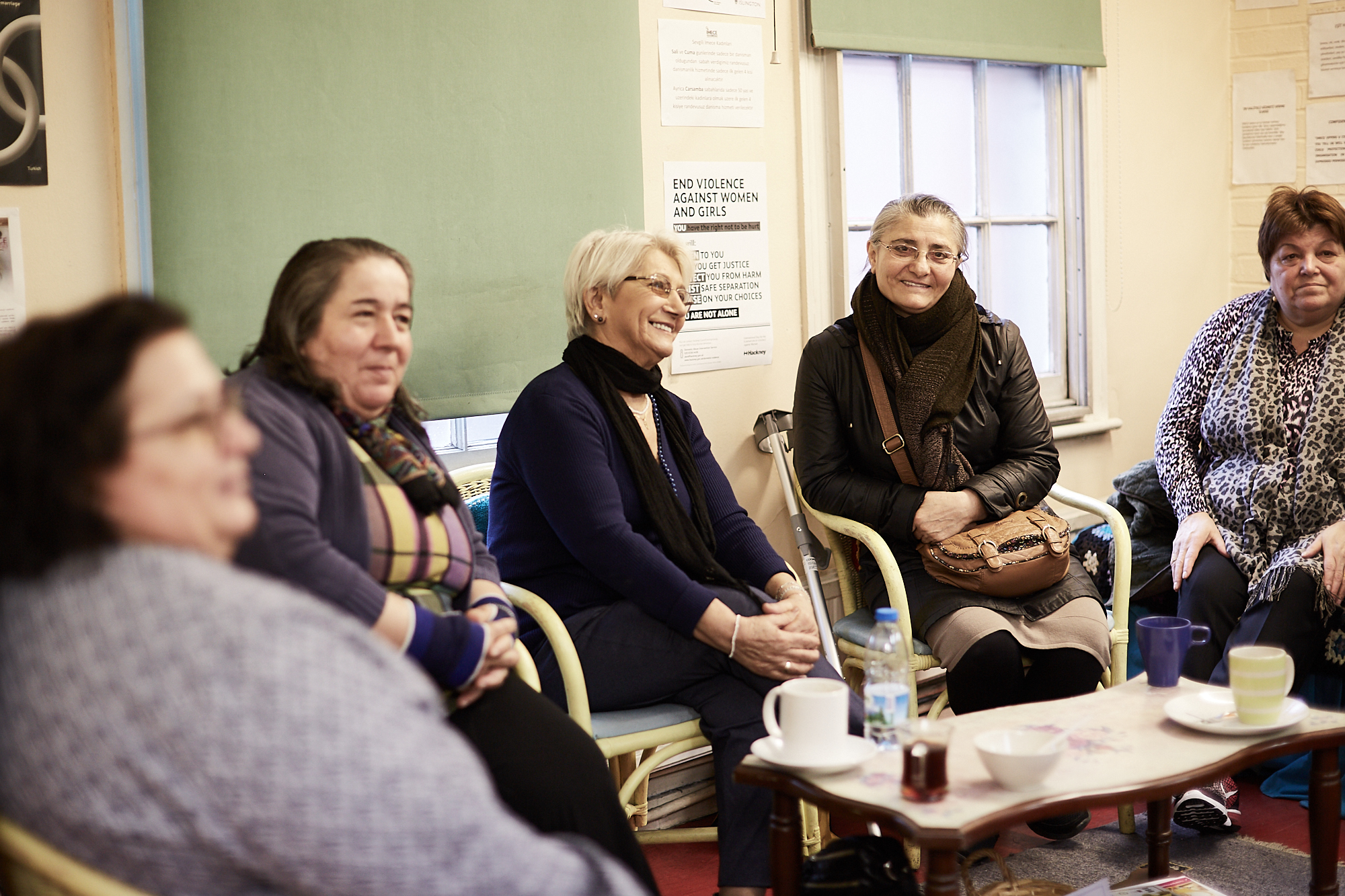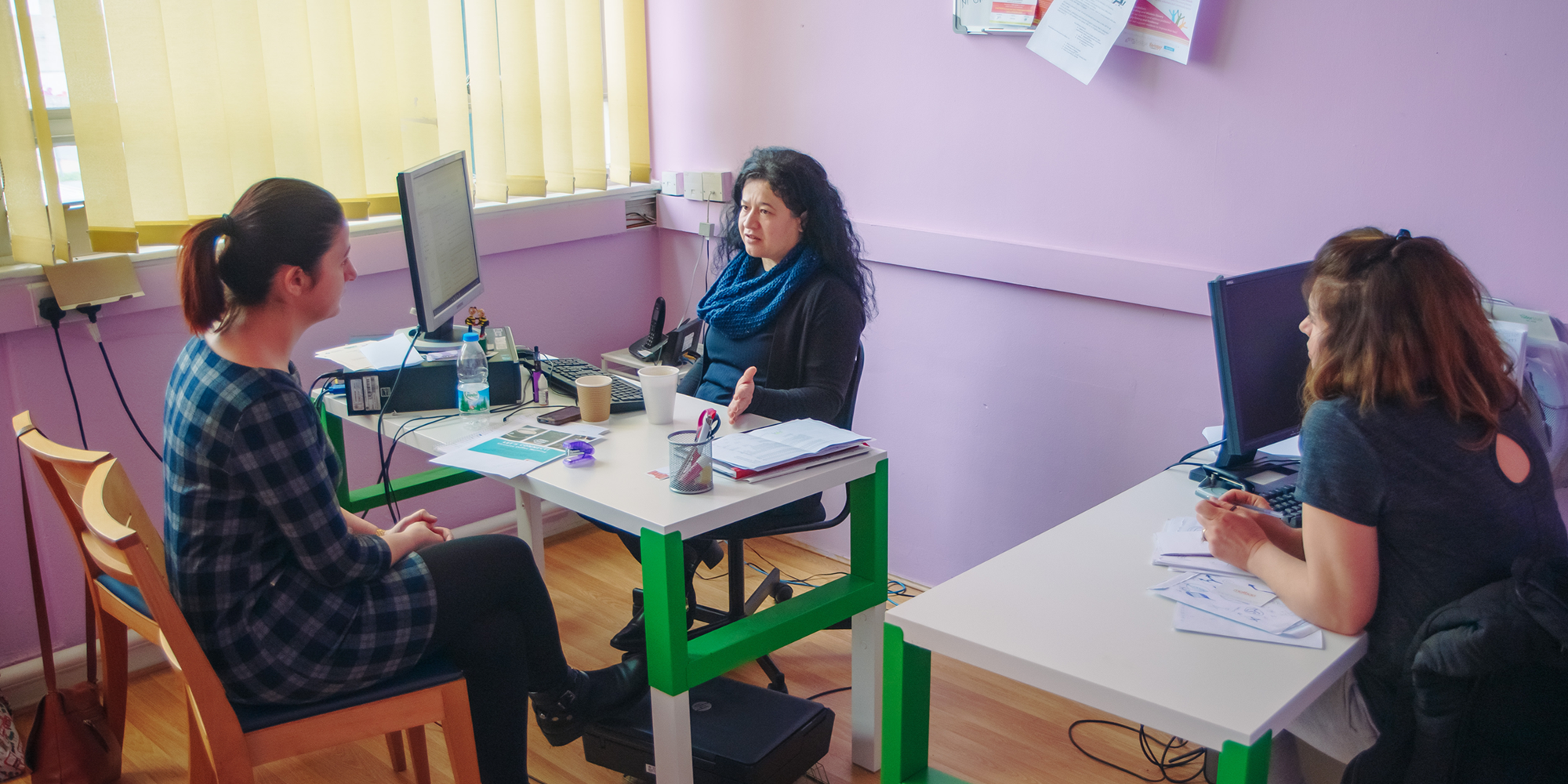
100% of the violence against women and girls funded organisations share that survivors they support are better able to cope with aspects of everyday life.
It may feel like a bold statement, but these are the findings after just one year of our Mayor of London’s Office for Policing and Crime (MOPAC) Grassroots Violence Against Women and Girls (VAWG) Fund, which launched in April 2021. Now at the midway point of the fund – we take a look back at the journey so far.
About the Mayor’s Office for Policing and Crime VAWG Grassroots Fund
The results above came from women and girls reporting to the 41 diverse partner organisations in our VAWG Grassroots Fund, supported by MOPAC. The Mayor of London launched this £3 million fund in April 2021 to help address the needs of women facing multiple disadvantage where mainstream, generic provision is not always appropriate. This includes:
- the needs of minoritised women from Black and minoritised ethnic backgrounds
- lesbian, bisexual, transgender, queer + women and disabled women
- women with No Recourse to Public Funds
- women involved in prostitution and exploitation
This fund was also created to support the reduction in violent crimes, prevention initiatives and victim recovery. The London Community Foundation (LCF) is managing the programme in partnership with The Social Innovation Partnership (TSIP) and on behalf of MOPAC. For more information on this fund, see the related blog articles at the bottom of this page.
What exactly do these heroines do?
The 41 organisations that make up this richly diverse cohort work tirelessly to support the recovery of marginalised survivors and to prevent the (re)victimisation of gender-based violence, also referred to as Violence Against Women and Girls, or VAWG*. They primarily exist to carry out research and provide frontline support services. This can include casework, advocacy, counselling, helplines and more. However, over the first year of the fund, we have seen that they do so much more.
The initial need for support for victims and survivors often overlaps with additional issues with housing, substance use, financial hardship, immigration, child protection and legal support, to mention a few. As result, some caseworkers find themselves wearing many hats to meet those individual needs. This is the case with several organisations, including Kiran Support Services, Aanchal Women’s Aid, and Kanlungan, who provide multiple interventions. These can include refuge, counselling, immigration support, learning workshops, access to employment and much more. Providing a wide scope of services under one roof is often necessary to meet intersectional needs and avoid long waiting times.
Other organisations collaborate very closely with agencies to ensure that holistic needs are met, especially housing. For example, during the Christmas period, Sistah Space’s Independent Domestic Abuse Advocates (IDVAs) spent an entire day on supporting one woman to access safe housing, while a volunteer looked after her child to ensure their safety. Unfortunately, they could not secure council housing, so Sistah Space provided them with a hotel. When the perpetrator eventually found the woman, Sistah Space supported her and the child to move to another hotel, and eventually temporary council accommodation through emergency housing. This can be an exhausting process but, for these heroines, the value of supporting women to safety is beyond measure.
Being able to offer safety also means building trust with a victim. Our partners The Traveller Movement saw this with a young Traveller woman who had been experiencing domestic violence by her mother from a young age. She had tried reaching out to refuges, domestic abuse services, the local council, and police, but felt her needs were not seen as a priority and, therefore, lost trust in those she was seeking support from. When the woman found The Traveller Movement, they dedicated six whole months to providing emotional support and exploring safety options alone, including the need for secure accommodation. The woman continues to live in a violent home but is now empowered to seek support from her IDVA, as she now feels like a priority.
What does the VAWG Grassroots Fund mean to the ‘100%’...
As part of the VAWG Grassroots Fund, we ask all 41 organisations to report on the number of women and girls being supported by this fund, and how they are getting on with their recovery. Today, we celebrate the 100% of funded organisations who have supported survivors to feel
better able to cope with aspects of everyday life. We also celebrate the survivors by hearing directly from them.
It was a real life-saver. Thanks to ELOP (East London Out Project) I recognise which thought patterns or behaviours of mine were destructive and which were helpful. I also discovered that more people like me existed, and I stopped feeling isolated or irreconcilably “different”. ELOP gently guided me on a journey of self-discovery and self-acceptance for which I’m incredibly grateful.ELOP beneficiary
One woman supported by Women’s Health and Family Services was fighting stigma and working through an imposed sense of shame. She shared, “I feel that I am getting more confident to speak, talk about my life, my needs, my health and well-being knowing that I am not alone, I was ashamed before about a lot of things and I just want more for myself.”
Action Breaks Silence is a frontline prevention educational charity, whose aim is to is to create a world where women and girls can live their lives free from male violence. They take a youth peer-to-peer mentorship approach through a Train the Trainer Programme and various schools’ programmes, which aim to tackle sexual harassment and sexual violence in youth relationships. One of their users said, ‘Self-defence taught me how to be a warrior and protect myself’.
We are seeing that, for many of these women, empowerment and access to support has been made possible through the fulfilment of basic needs such as food, clothing and communication. For others, there is power in someone recognising that language and neurodiversity can also be a barrier. For instance, one of the funded organisations supported one woman’s diagnosis with Autism Spectrum Disorder. She said, “with my Autism I find meetings and discussions in general quite intense, and I often need to take lots of breaks and use tools such as our noise cancelling headphones and quiet space to help me cope.” This diagnosis allowed her to better communicate with others and, after several months of trust building, she is getting a service that is personalised to her needs, in a way that best supports her recovery journey.
I salute WAND UK for all you are doing for women in the community including myself. I am prepared to volunteer and help other women as you have helped me.WAND UK beneficiary
The voices of the women that have received support also hold a strong sense of unity and sisterhood. This was particularly noted in a research project carried out by FORWARD UK, where one interviewee said “nobody outside of my community has asked me my opinion or views on Female Genital Mutilation (FGM). One of the best things about this experience was the other fellows. We have developed a friendship, a sisterhood and a bond. We have all individually and collectively made a pact to be part of the fight against FGM, all other forms of gender-based violence and other injustices faced by African women worldwide.”
The road to recovery
While these organisations are designed to focus on meeting support needs and reducing risk, they also place a significant emphases on recovery through educating and empowering women and girls. These organisations offer advice and training in how to recognise behaviours that are harmful and give women and girls the confidence and tools to be more empowered to live a life free from violence.
Having seen the incredible achievements of this fund so far, we are more inspired than ever to continue to support these grassroots organisations. We look forward to continuing to work with them, learn from them and support the amazing impact for the second year of this milestone fund.
Notes
Violence against women and girls (VAWG) / Gender-based violence
*Violence Against Women and Girls, referred to as VAWG, is also used interchangeably with gendered based violence to illustrate the gender dimension and context of the violent act itself. That being said, it is important to note that men and boys can also be subjected to gendered based violence.


